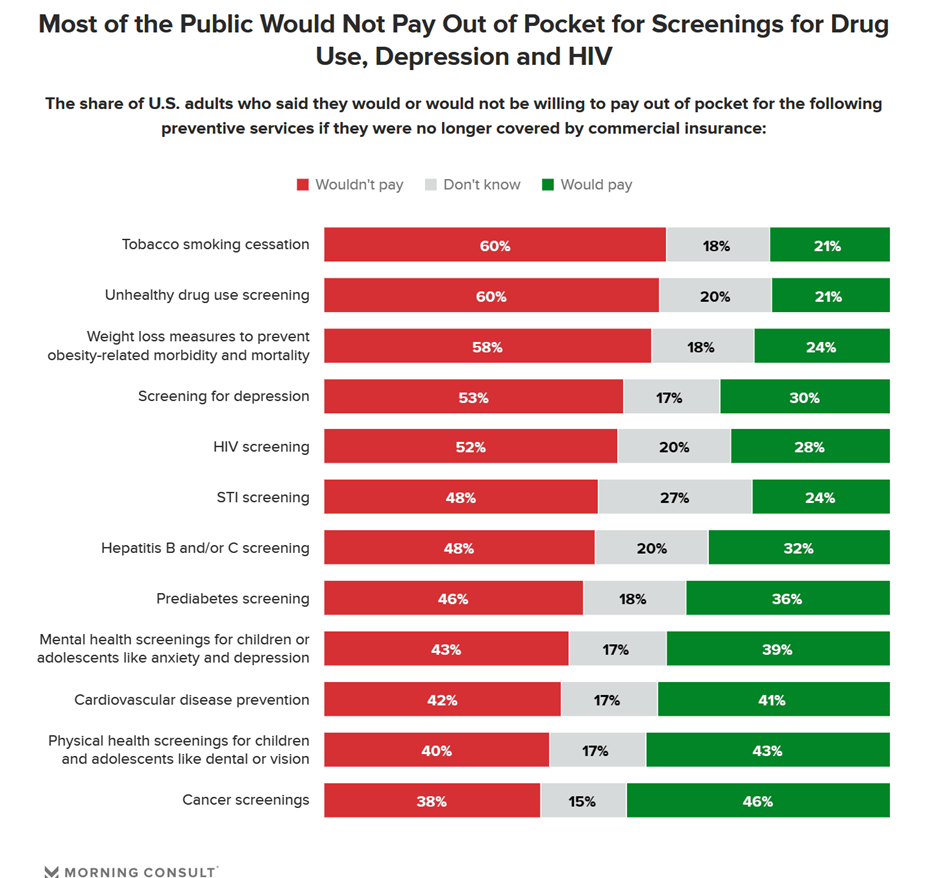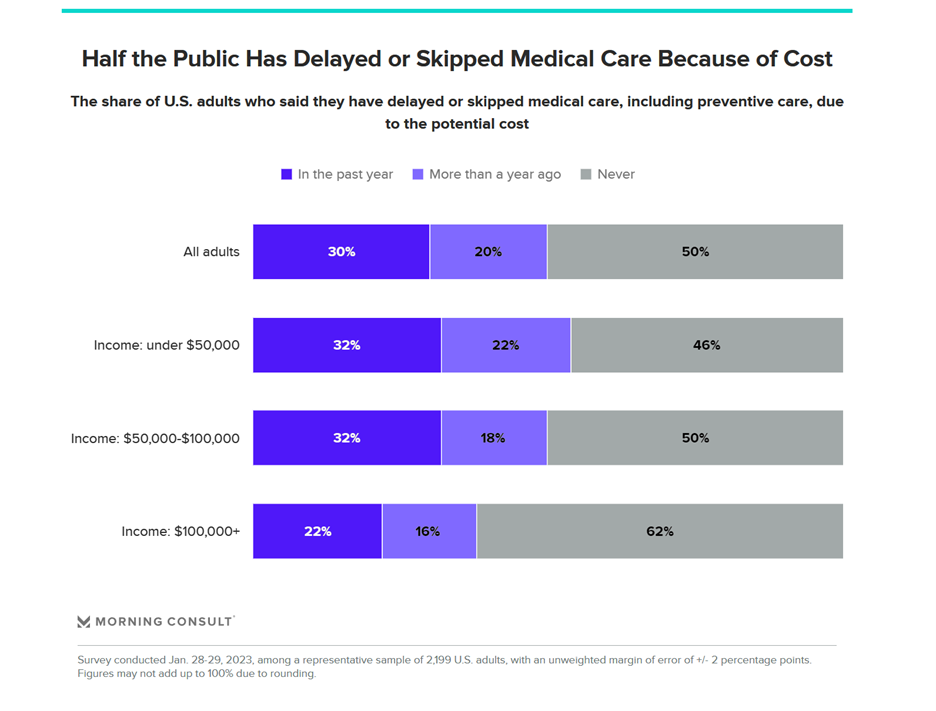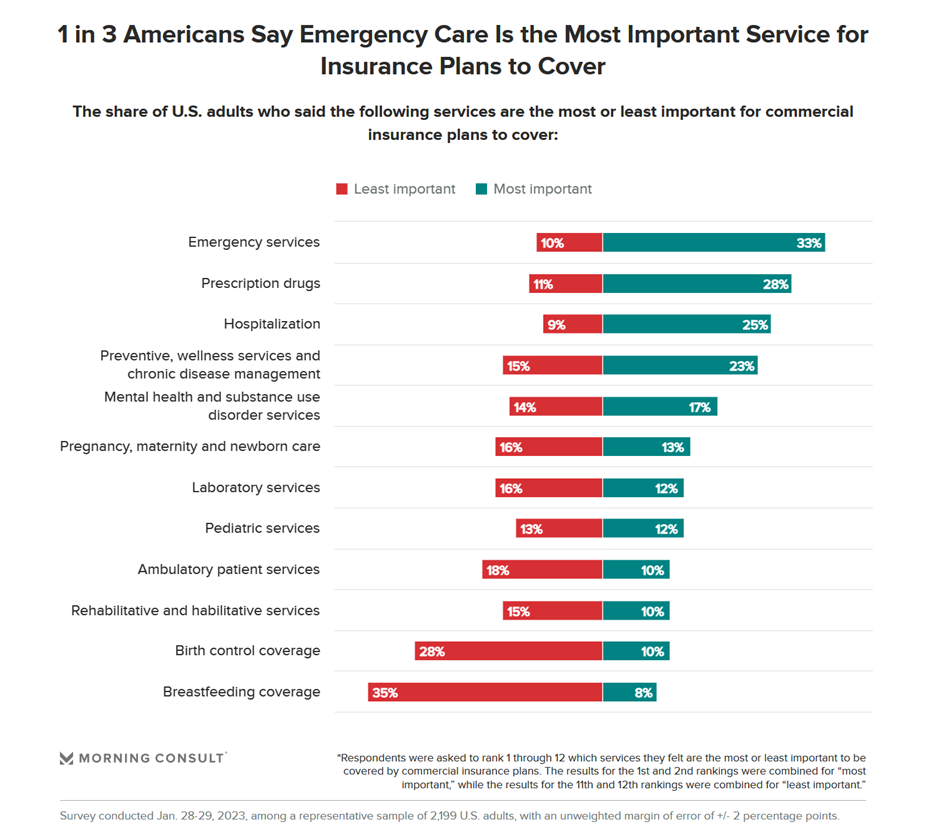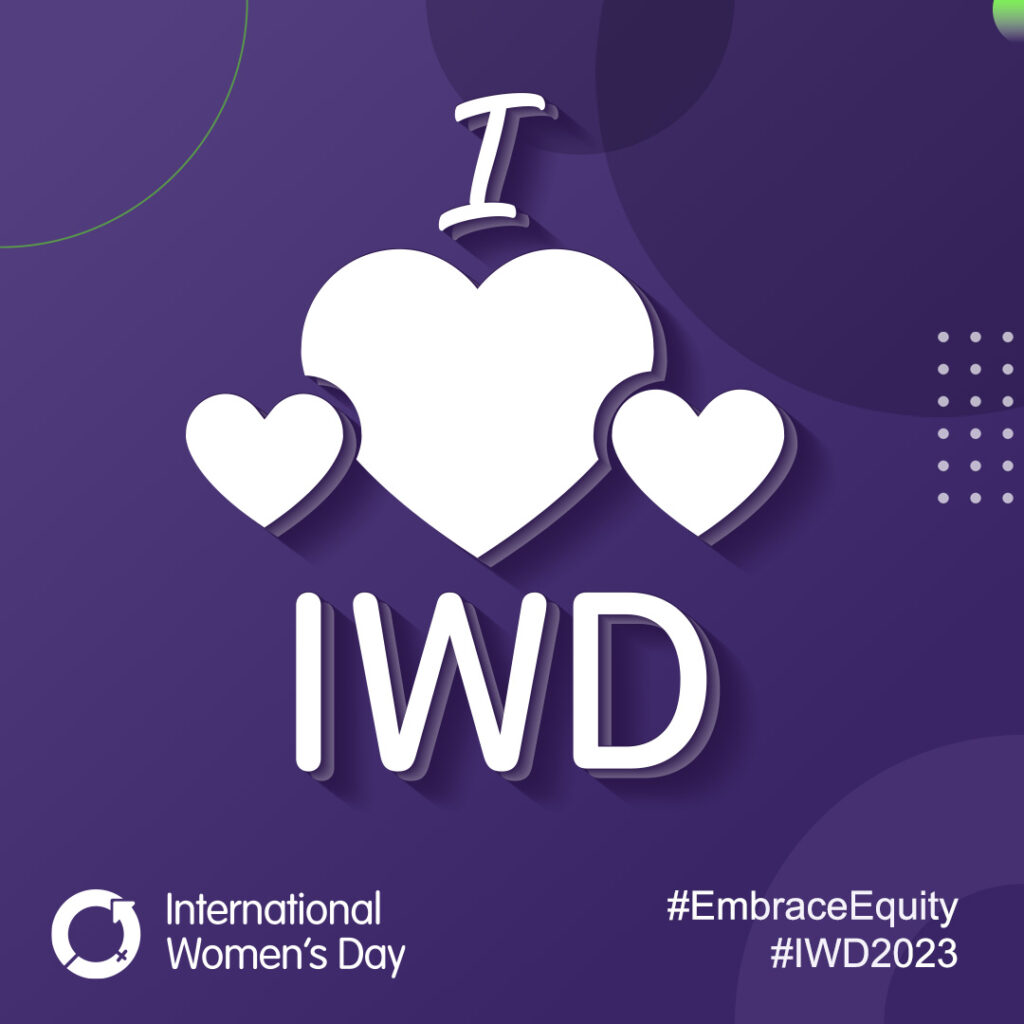Many health citizens in the U.S. would likely skip receiving preventive health care services if the Affordable Care Act’s (ACA) coverage for them goes away, a Morning Consult survey found.

The first chart illustrates the top-line of this research: that most U.S. adults would not pay out of pocket for several preventive services including tobacco cessation, drug use screening, weight loss measures to prevent obesity-related illnesses, as well as screening for depression or HIV.
One of the key benefits embedded in the ACA was “free” without co-pay shares for preventive care. These addressed four broad categories of services for adults and children covering screening and counseling (e.g., depression, diabetes, obesity, various cancers, and sexually transmitted infections) as well as prenatal tests, medications that can help prevent HIV, breast cancer, and heart disease, as well as counseling for drug and tobacco use, healthy eating, and other common health concerns. Routine immunizations have also been covered (updated for COVID-19). In addition, preventive services for women are part of ACA prevention list such as well-woman visits, all FDA-approved, -granted, or -cleared contraceptives and related services, and other female-focused care.
It’s a lot — and has made a huge difference in public health access for those enrolled in ACA plans.
Morning Consult polled 2,199 U.S. adults in late January 2023 to understand how American health consumers felt about paying for health care — in particular, the preventive care services that were embedded in the original Affordable Care Act (ACA), currently on the Texas Supreme Court docket of Judge Reed O’Connor. (If you want to learn more details on the case, it’s formally filed as Braidwood Management Inc. v. Becerra).
Judge O’Connor had ruled that the ACA was unconstitutional over four years ago — overturned by the Supreme Court. In September 2022, Judge O’Connor ruled it unconstitutional for the ACA to require health plans to cover preventive services.

Health Populi’s Hot Points: By late January, one-in-two U.S. adults said they had delayed or skipped medical care due to cost — including preventive services. This included 54% of those earning under $50,000 a year, 50% of people earning between $50K and $100,000, and 38% of those earning over $100,000 a year.
People value preventive care, but if they have to cover these services out of their own pockets, the services compete with other household spending that, in the current economic climate, crowds out preventive care for many households.

Check out the health care services Americans say are the most important for commercial health insurance plans to cover.
First comes emergency services, followed by prescription drugs, hospital inpatient care, and then preventive services and chronic disease management followed by mental health and substance use disorder services.
Celebrating International Women’s Day today for 2023, we are joining the theme #EmbraceEquity.

Women’s health care and health rights around the world have been eroded, especially in the wake of the pandemic as well as structural blocks to care (say, in the U.S. Post-Dobbs era of women’s health access challenges).
“A woman’s health is her capital and her body hears everything her mind says.” This is one of the mantras for #IWD2023. Health care access and equity cannot be separated from women’s overall well-being – mind, body, spirit, financial. We still have such a long way to go to achieving equity for women across all of these pillars. Let’s continue to collaborate together to advance and #EmbraceEquity this year and ongoing.




 I'm in amazing company here with other #digitalhealth innovators, thinkers and doers. Thank you to Cristian Cortez Fernandez and Zallud for this recognition; I'm grateful.
I'm in amazing company here with other #digitalhealth innovators, thinkers and doers. Thank you to Cristian Cortez Fernandez and Zallud for this recognition; I'm grateful. Jane was named as a member of the AHIP 2024 Advisory Board, joining some valued colleagues to prepare for the challenges and opportunities facing health plans, systems, and other industry stakeholders.
Jane was named as a member of the AHIP 2024 Advisory Board, joining some valued colleagues to prepare for the challenges and opportunities facing health plans, systems, and other industry stakeholders.  Join Jane at AHIP's annual meeting in Las Vegas: I'll be speaking, moderating a panel, and providing thought leadership on health consumers and bolstering equity, empowerment, and self-care.
Join Jane at AHIP's annual meeting in Las Vegas: I'll be speaking, moderating a panel, and providing thought leadership on health consumers and bolstering equity, empowerment, and self-care.